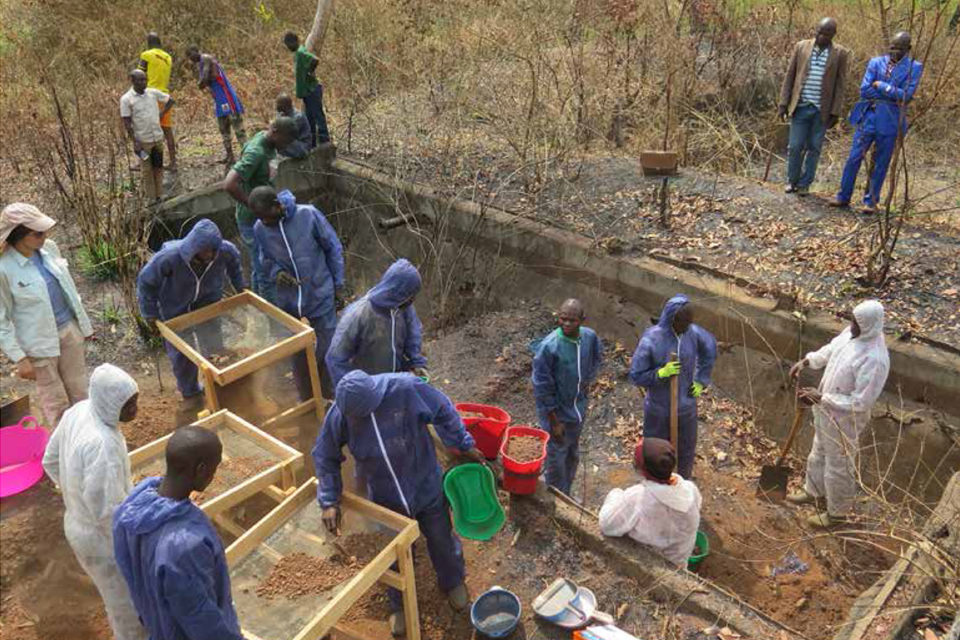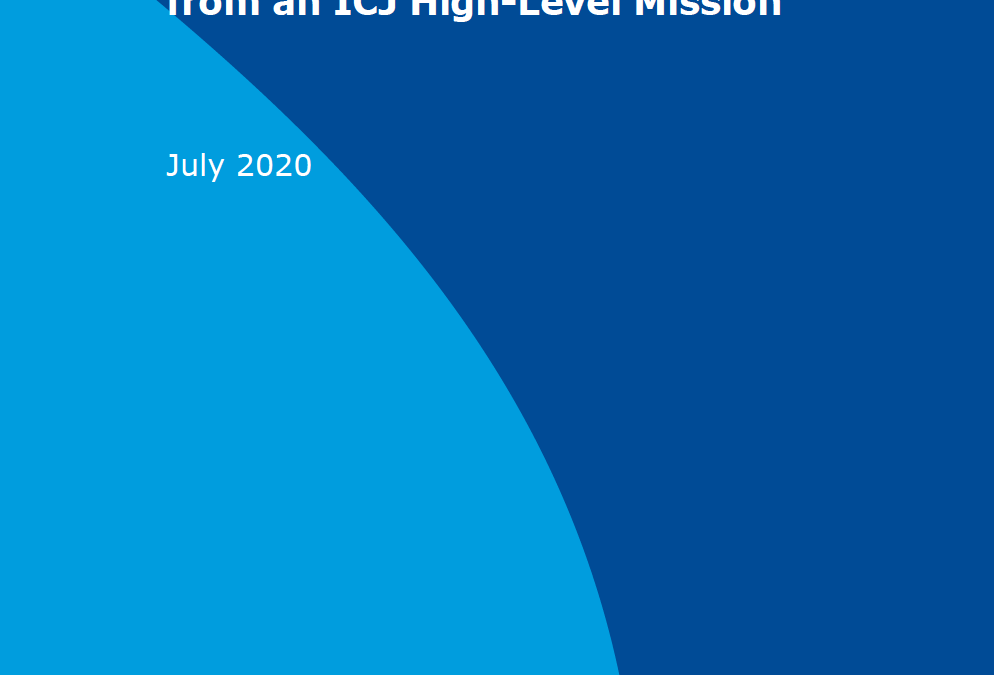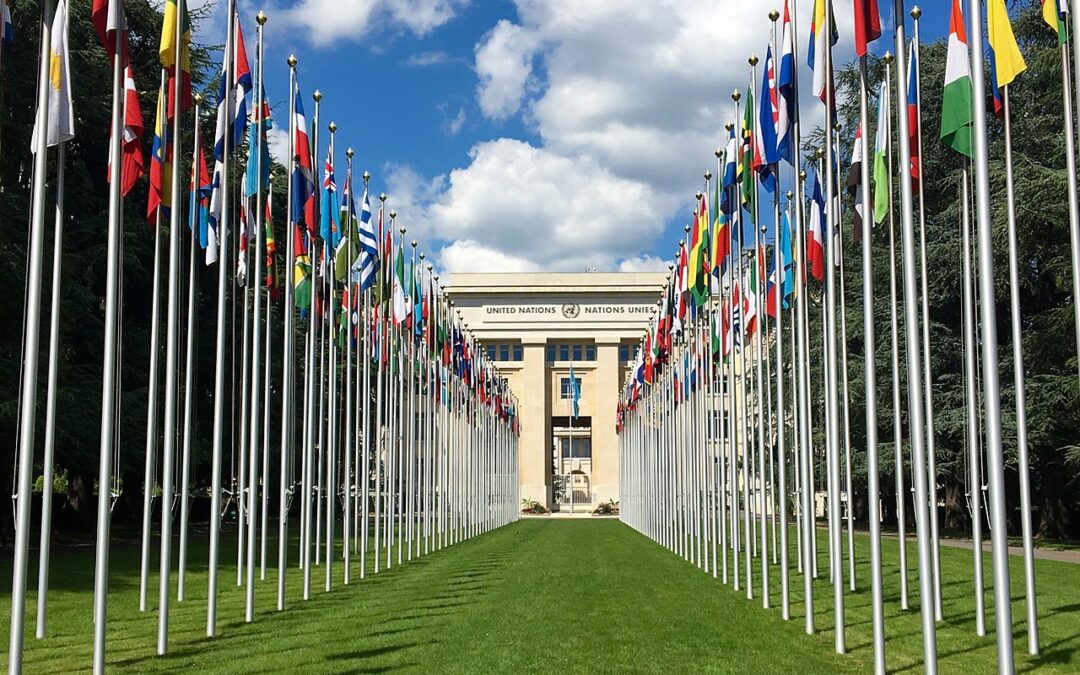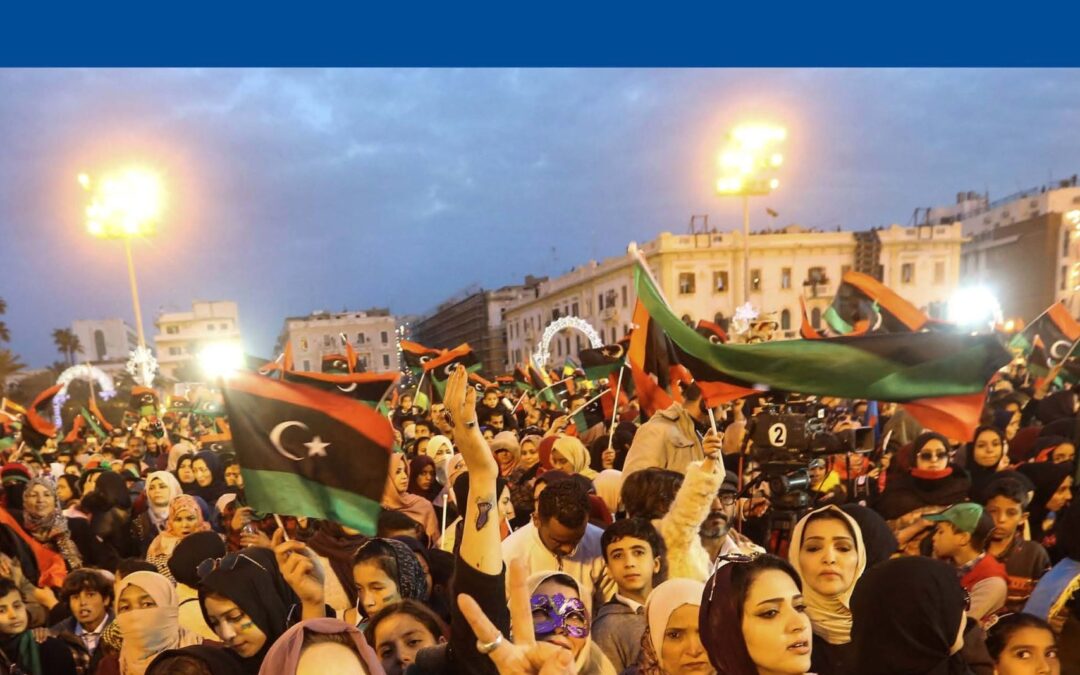
Aug 20, 2020 | Artículos, Noticias
A pesar de esfuerzos significativos para recuperar e identificar restos óseos en América Latina, todavía hay miles de casos donde los restos no han sido identificados y entregados a los familiares. Asimismo, se debe destacar el hecho de que los familiares todavía tienen problemas para entender y participar en el proceso forense.
Con el fin de contribuir a la solución de este problema, el Equipo Argentino de Antropología Forense (EAAF) lanzó hoy una guía forense con información práctica y accesible sobre la investigación, recuperación y análisis de restos óseos.
La guía es particularmente útil para las personas que no tienen previos conocimientos forenses. Además, contribuirá para mejorar el entendimiento y la participación de las víctimas y organizaciones de la sociedad civil en la búsqueda de personas desaparecidas.
La guía fue escrita por Luis Fondebrider, director ejecutivo del EAAF y para su elaboración se tuvo en cuenta los estándares internacionales en la materia, incluyendo el Protocolo de Minnesota sobre la Investigación de Muertes Potencialmente Ilícitas (2016). La Comisión Internacional de Juristas (ICJ), el Equipo Peruano de Antropología Forense (EPAF) y la Fundación de Antropología Forense de Guatemala (FAFG) contribuyeron con insumos para la elaboración de la guía.
La guía fue lanzada durante un webinar. Los panelistas del evento fueron Luis Fondebrider del EAAF; Claudia Rivera de la FAFG y Franco Mora del EPAF. Contó con la moderación de Carolina Villadiego de la CIJ.
En el lanzamiento, todos los expertos forenses enfatizaron en el rol central que los familiares de las personas desaparecidas deben tener en el proceso de investigación, recuperación y análisis de restos óseos. En particular, se resaltó que los familiares no solo tienen información clave para encontrar los restos, sino que también, son los que impulsan estos procesos.
Actualmente, la guía está disponible en español y en los próximos meses estará disponible en inglés.
Contexto:
La guía fue producida como parte de un proyecto regional para promover justicia para ejecuciones extrajudiciales y desapariciones forzadas en Colombia, Guatemala y Perú, que es coordinado por la CIJ.
El objetivo principal del proyecto es mejorar la rendición de cuentas en casos de ejecuciones extrajudiciales y desapariciones forzadas, a través del fortalecimiento de capacidades de jueces, fiscales, investigadores, víctimas, abogados, forenses, y organizaciones de la sociedad civil. El proyecto cuenta con el apoyo del Instrumento Europeo para la Democracia y los Derechos Humanos (IEDDH).
Además, se implementa en conjunto con la Asociación Red de Defensores y Defensoras de Derechos Humanos de Colombia (dhColombia), el Equipo Argentino de Antropología Forense (EAAF), la Asociación de Familiares de Detenidos-Desaparecidos de Guatemala (FAMDEGUA), el Equipo Peruano de Antropología Forense (EPAF), la Fundación de Antropología Forense de Guatemala (FAFG), y el Instituto de Defensa Legal de Perú (IDL).
Contactos:
Kingsley Abbott, Coordinador de la iniciativa global de rendición de cuentas de la CIJ. Correo electrónico: kingsley.abbott(a)icj.org
Carolina Villadiego, Asesora Legal, América Latina y coordinadora regional del proyecto. Correo Electrónico: carolina.villadiego(a)icj.org

Aug 6, 2020
In a report published today, the ICJ called on the Government of Nepal to undertake substantial reforms in order to ensure that the wide-ranging constitutional and political restructuring of recent years will allow the country to deliver on human rights accountability and access to justice for all Nepalis.
The Report on Human Rights and the Rule of Law in a Federal Nepal incorporates the findings of a High-Level Mission undertaken by the ICJ in December 2019.
The Report offers more than 50 recommendations, including that the Nepali authorities act to remove obstacles to access to justice for those seeking a remedy and reparation for human rights violations and abuses, both from the conflict era and contemporary times. The ICJ also called upon the authorities to end political interference in the enforcement of the law and administration of justice, including in respect to directives from the courts and the National Human Rights Commission.
“In the face of the challenges of federal decentralization, it is vital that all Nepalis are able to trust in their fair and equal treatment under the law,” said ICJ Commissioner and former Nepal Supreme Court Justice Kalyan Shrestha. “This report is a guide to how that public trust can be strengthened in Nepal.”
The ICJ Mission found that despite strides in the development of human rights law, policy and jurisprudence, many long-standing obstacles to accountability and access to justice persisted and remained largely unaddressed.
“Nepal remains caught in a cycle of impunity that threatens to undermine the rule of law, as evidenced by a stalled transitional justice process, compromised justice sector institutions, a fragmented civil society, and the persistence of systemic discrimination,” said ICJ Commissioner Dame Silvia Cartwright. “Despite notable efforts by provincial policymakers, a robust judiciary and the relentless advocacy of civil society, authorities representing the ‘new’ Nepal are in danger of repeating the mistakes of the past in failing to truly listen and respond to the demands of Nepalis for justice.”
The Report considers the human rights impacts of recent changes in the political and legal context, such as the implementation of provisions of the 2015 Constitution that operationalize elements of a new federal system of governance, long-awaited amendments to the Penal Code and other laws affecting the criminal justice system, and a lack of progress in the transitional justice process, as well as the de-stabilizing effects of recent political developments and COVID19.
The Mission was undertaken by ICJ Commissioners Justice Sanji Monageng (Botswana), Dame Silvia Cartwright (New Zealand) and Justice Kalyan Shrestha (Nepal), as well as ICJ Legal and Policy Director Ian Seiderman and ICJ Asia-Pacific Director Frederick Rawski.
The Report, building on a 2017 ICJ baseline study, offers findings in three main areas:
- Non-Implementation. Nepal has made notable strides in the progressive development of law and jurisprudence that incorporates significant elements of the international human rights law framework, such as the fundamental rights provisions of the 2015 Constitution. However, constitutional mandates, legislation and judicial decisions have in many cases gone unimplemented or been actively undermined at the expense of public trust in government, and access to justice for victims.
- Independent and Impartial Institutions. Nepal has made progress in establishing and building the capacity of justice institutions including police, prosecutors, the judiciary, transitional justice mechanisms and national human rights bodies. However, these institutions suffer from weaknesses in capacity and independence, and are vulnerable to political influence and manipulation.
- Accountability and Access to Justice. Despite improvements in the law and progress in institution-building, Nepalis still face the same barriers to accessing the justice system. Frontline institutions, particularly the police and prosecutors, lack the political will and capacity to effectively interface with communities. Individual Nepalis, especially those from ethnic minority communities or without proof of citizenship, typically face overwhelming obstacles when pursing a remedy in the courts.
Safeguarding the independence of the judiciary was a central theme of the Mission. The Mission found that the Supreme Court continues to effectively carry out its responsibilities under Nepal’s constitution and international law to protect human rights. However, it also concluded that persistent non-implementation of judicial decisions constituted a serious abdication of responsibility on the part of the executive authorities.
“The Mission was impressed by the role that the judiciary, and particularly the Supreme Court, has played in protecting human rights,” said ICJ Commissioner Justice Sanji Monageng. “However, we repeatedly heard concerns that officials routinely ignore judicial decisions – to such a degree that non-implementation threatens to diminish the credibility of the judiciary in the eyes of the public.”
The Mission found that the failure to respect judicial decisions was exacerbated by political interference in the appointment processes of key institutions, such as the Supreme Court, Nepal Police, National Human Rights Commission and transitional justice bodies. Among its recommendations, the report calls for the adoption of more fair and transparent appointment processes, and other measures to prevent political interference in the application of the law.
“Political interference in the appointments of high public officials erodes public trust, degrades the effectiveness of governance, and creates conditions for corruption,” added Justice Shrestha. “This includes the current system of judicial appointments, which is vulnerable to political influence, and must be reformed.”
Drawing on these findings and observations, the report offers extensive recommendations directed to the Office of the Prime Minister, federal and provincial legislatures, the Nepal Police, the Office of the Attorney General, the judiciary including the Supreme Court and National Judicial Academy, the National Human Rights Commission, civil society and the diplomatic community.
Download
Human Rights and the Rule of Law in a Federal Nepal: Recommendations from an ICJ High-Level Mission in English and Nepali.
Executive Summary and Recommendations in Nepali.
Story in English and Nepali
Contact
Frederick Rawski, ICJ Asia-Pacific Director, e: frederick.rawski(a)icj.org
Ian Seiderman: ICJ Legal and Policy Director, e: ian.seiderman(a)icj.org
Mandira Sharma: ICJ Senior Legal Adviser, e: mandira.sharma(a)icj.org

Jul 14, 2020 | Advocacy, Non-legal submissions
At the UN Human Rights Council, the ICJ today highlighted the need for a range of measures to effectively address the continuing impunity for gross violations of human rights in Myanmar.
The oral statement, which was delivered in an interactive dialogue with the UN Special Rapporteur on the situation of human rights in Myanmar, read as follows:
“The ICJ welcomes and shares the concerns of the final report of the previous Special Rapporteur Ms Yanghee Lee, particularly with the lack of accountability for gross human rights violations against Myanmar’s ethnic minorities.
The ICJ recalls Myanmar’s international human rights obligations, including under the Convention on the Prevention and Punishment of the Crime of Genocide and the provisional measures ordered by the International Court of Justice in The Gambia v. Myanmar case.
The ICJ underscores that directives enjoining government officials from engaging in further acts of genocide are not sufficient without comprehensive legal and constitutional reform to end impunity. This includes the amendment of laws such as the 1959 Defence Services Act and the 2014 Myanmar National Human Rights Commission Law.
National institutions continue to fail to conduct credible investigations into allegations of widespread human rights violations by the military against ethnic minorities. The final report of the Independent Commission of Enquiry, which was not made public, was transmitted to the Attorney General and the Commander-in-Chief of Myanmar’s Armed Forces, implying that military courts will take jurisdiction over at least some of the cases, inconsistent with Principle 29 of the UN Principles for the protection and promotion of human rights through action to combat impunity (UN doc E/CN.4/2005/102/Add.1/).
Mr Andrews, as the new mandate-holder, the ICJ would like to invite you to elaborate on your priorities and strategies for addressing the continuing impunity for such violations in Myanmar.”

Jul 10, 2020 | Advocacy, News, Non-legal submissions
Today, the ICJ submitted a report to the UN Human Rights Council Working Group on the Universal Periodic Review (UPR) ahead of the review of Myanmar’s human rights record in January-February 2021.
The ICJ stressed the lack of accountability and redress for victims – and the resulting continued culture of impunity – for widespread gross human rights violations constituting crimes under international law in Myanmar, particularly those involving members of Myanmar’s Defence Services.
Certain provisions under the 2008 Myanmar Constitution as well as national laws such as the 1959 Defence Services Act and 1995 Myanmar Police Force Maintenance of Discipline Law shield security forces from public criminal prosecutions in civilian courts. Closed court martial proceedings also deny victims and their families the right to truth about human rights violations.
The Myanmar National Human Rights Commission (MNHRC), Myanmar’s national human rights institution with the mandate to investigate allegations of human rights violations, has not initiated any substantive or credible investigation into allegations of widespread and systematic human rights violations perpetrated in recent years by soldiers against persons from ethnic minorities, despite being recorded in detail in the reports of the UN Independent International Fact-Finding Mission on Myanmar and the UN Special Rapporteur on the situation of human rights in Myanmar.
Rather than strengthen the role of civilian courts and the MNHRC, Myanmar has set up ad hoc commissions of inquiry to investigate such incidents. However, these inquiries have a recommendatory mandate and an unclear relationship with the judiciary. The full report of the findings of these commissions are generally not publicly disclosed. Against this backdrop, Myanmar has ceased cooperation with the UN Special Rapporteur for Myanmar and rejected other UN and international accountability mandates.
In light of this, the ICJ recommended the following actions, among others:
- For the MNHRC to investigate all allegations of gross human rights violations, especially including crimes under international law;
- For the Parliament to repeal or amend the 1959 Defence Services Act to bring it in line with international human rights law and standards and ensure that gross human rights violations and serious international humanitarian law violations perpetrated by soldiers can only be prosecuted in civilian courts;
- For the Union Government to publish the full report of the findings of ad hoc commissions of inquiry, such as that of the Independent Commission of Enquiry;
- For the Union Government to issue an open invitation to and cooperate with the Special Rapporteur on the situation of human rights in Myanmar, the Office of the High Commissioner for Human Rights as well as the UN Independent Investigative Mechanism on Myanmar; and
- For the Union Government to cooperate with the International Criminal Court.
The ICJ also called for Myanmar to become a party to key human rights treaties, such as the International Covenant on Civil and Political Rights, that the State committed – yet failed – to accede to in its previous UPR cycle.
Download
Myanmar-UPR-Submission-2020-ENG (PDF)
Contact
Jenny Domino, ICJ Associate Legal Adviser, e: jenny.domino@icj.org
Kingsley Abbott, Coordinator of the ICJ’s Global Accountability Initiative, e: kingsley.abbott(a)icj.org

Jul 9, 2020
In a briefing paper published today, the ICJ called on the Libyan authorities to act to amend the country’s transitional justice law in order to allow it to serve its purpose in facilitating accountability, truth and reparation for past and ongoing gross human rights violations committed in the country.
To date, transitional justice in Libya has not been implemented due to the entrenched political instability and ongoing armed conflict.
International support for the transitional justice process has recently been expressed in the Berlin Conference Conclusions on 19 January 2020, endorsed by UN Security Council Resolution 2510 (2020).
“Reconciliation in the country won’t be achieved unless accountability for gross human rights violations and justice to victims are guaranteed,” said Said Benarbia, the ICJ’s MENA Programme Director.
“To achieve these objectives, the transitional justice framework must be fully reviewed to conform to Libya’s obligations under international law.”
This framework, particularly Law No. 29 of 2013, fails to provide for jurisdiction over crimes under international law, including enforced disappearance, rape and other forms of sexual violence, war crimes and crimes against humanity. It also fails to ensure that legal measures historically used by States to foster impunity – such as amnesties, immunities and statutory limitations – cannot apply to prosecutions for these crimes.
The independence, impartiality and competence of the Fact-Finding and Reconciliation Commission, established under the Law to conduct fact-finding into gross human rights violations and award reparations to victims, is not adequately guaranteed. The scope of its mandate is not sufficiently clear and its investigative powers are too weak to serve its purpose.
Law No. 29 of 2013 does not also adequately ensure the right to truth or lay the foundations for the public participation in, and the transparency of, the transitional justice process.
The Law also fails to provide for access to effective remedies and full and adequate reparations to victims of gross human rights violations or abuses, and their next of kin.
“Transitional justice in Libya must live up to the expectations of victims and their families,” said Kate Vigneswaran, the ICJ’s MENA Programme Senior Legal Adviser.
“Libyans have the right to know the complete truth regarding all gross human rights violations perpetrated in Libya, and victims must be guaranteed full redress for the harm suffered.”
Contact
Said Benarbia, Director, ICJ Middle East and North Africa Programme, t: +41-22-979-3817; e: said.benarbia(a)icj.org
Kate Vigneswaran, Senior Legal Adviser, ICJ Middle East and North Africa Programme, t: +31-62-489-4664; e: kate.vigneswaran(a)icj.org
Download
Libya-Transitional justice-Publications-Reports-thematic report-2020-ENG (full report, in PDF)
Libya-Transitional justice-Publications-Reports-thematic report-2020-ARA (full report in Arabic, PDF)









